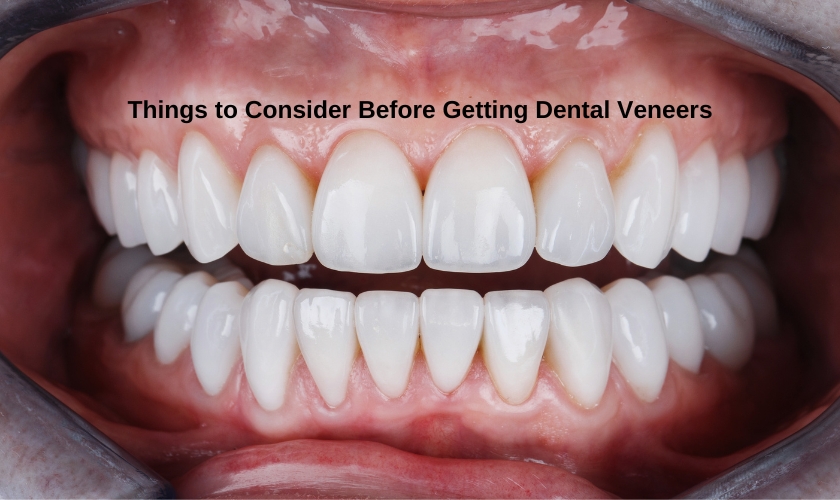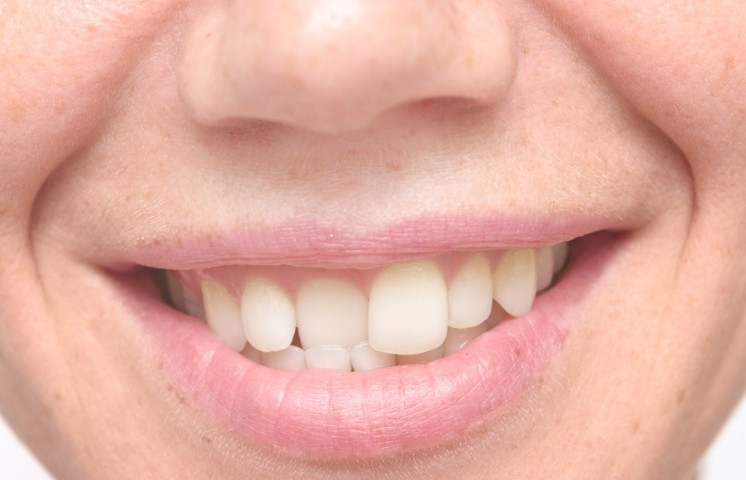We are not a registered Medicare/Medicaid Provider

Dental veneers are a sought-after cosmetic solution for those looking to enhance their smile. Whether you’re dealing with chips, gaps, or stubborn stains, veneers can offer a transformative and quick fix. They provide a polished, radiant appearance, giving you a boost of confidence with just a few visits to the dentist.
However, before you take the plunge, it’s crucial to carefully weigh several important factors. Understanding these dental veneers considerations can help you make an informed choice and ensure that the procedure goes well with your personal goals and expectations. By doing so, you can fully embrace the benefits of veneers and achieve the smile you’ve always desired.
Consultation with Your Dentist
Before moving forward with dental veneers, start with a thorough consultation with your dentist. This step is crucial for several reasons:
- Personalized Assessment: Your dentist will evaluate your dental health and discuss your goals for treatment. This ensures that veneers are the right option for you.
- Detailed Procedure Overview: You will learn about the process, including the steps involved and what to expect before, during, and after the procedure.
- Addressing Concerns: It’s a chance to ask questions and express any concerns you might have, such as the potential impact on your existing teeth or overall oral health.
Having a detailed discussion with your dentist helps you understand the procedure and addresses any dental veneers considerations specific to your situation.
Understanding the Procedure
Knowing what to expect can lessen dental anxiety and set realistic expectations:
- Enamel Reshaping: Usually, a small piece of enamel is taken from your teeth in order to correctly install veneers. This is a normal part of the process, but it’s essential to understand how it might affect your teeth.
- Duration and Process: The procedure usually involves multiple visits. Initially, your teeth will be prepared, and impressions will be taken. Then, temporary veneers may be placed while your permanent ones are made.
- Aftercare: Post-procedure, you may need to adjust to the feel of the veneers and follow specific care instructions to ensure their longevity.
Cost and Insurance
Comprehending its financial consequences might aid you in managing the cost of veneers effectively.
- Treatment Costs: Veneers can be a substantial investment. The cost varies based on the type of veneers and the complexity of the procedure. Porcelain veneers generally cost more than composite ones.
- Payment Options: Many dental offices offer financing plans or payment options to help manage the cost. Explore these options to find what works best for your budget.
- Insurance Coverage: Check with your insurance provider and know if they cover any part of the cost. Typically, cosmetic procedures may not be fully covered, but it’s always worth inquiring.
Maintenance and Care
The secret to guaranteeing the longevity of your veneers is proper maintenance:
- Daily Care: Maintain a good oral hygiene routine. Brush and floss regularly, and also use non-abrasive toothpaste to prevent damage to the veneers.
- Avoiding Stains: Although veneers are stain-resistant, it’s still a good idea to limit foods and drinks that can cause discoloration.
- Regular Check-ups: Visit your dentist on a regular basis for check-ups and professional cleanings. This helps keep your veneers in good condition and ensures that any issues are addressed on time.
Longevity and Durability
How long your veneers last can vary based on several factors:
- Material Quality: High-quality porcelain veneers typically last longer than composite ones. They are more resistant to wear and staining.
- Lifestyle Factors: Avoid habits that can damage your veneers, such as biting hard objects or grinding your teeth. Your lifestyle choices can significantly impact their durability.
- Regular Maintenance: Consistent care and regular dental visits play a crucial role in the longevity of veneers.
Making the Best Choice for Your Smile
Getting dental veneers can be a great way to improve your confidence and smile. By keeping these dental veneers considerations in mind, you can choose wisely and take use of the advantages of a beautiful, long-lasting smile. Remember to consult with your dentist, understand the procedure, consider the costs, maintain proper care, and be aware of how lifestyle factors can affect the longevity of your veneers.
Frequently Asked Questions About Dental Veneers
The longevity of dental veneers depends on the material and how well you care for them. Porcelain veneers usually last between 10 to 15 years, whereas composite resin veneers usually last around 5 to 7 years. Regular dental checkups and good oral hygiene can help extend their lifespan.
Dental veneers can help improve the appearance of slightly crooked teeth by creating a more uniform look. However, they are not a substitute for orthodontic treatment. For significant misalignment, braces or clear aligners might be a more effective solution.
Choosing between porcelain and composite veneers depends on your specific needs and budget. Porcelain veneers are more durable, stain-resistant, and offer a more natural look but are generally more expensive. Composite veneers are less costly and may be put in just one visit, but they might not be as durable as porcelain veneers.



